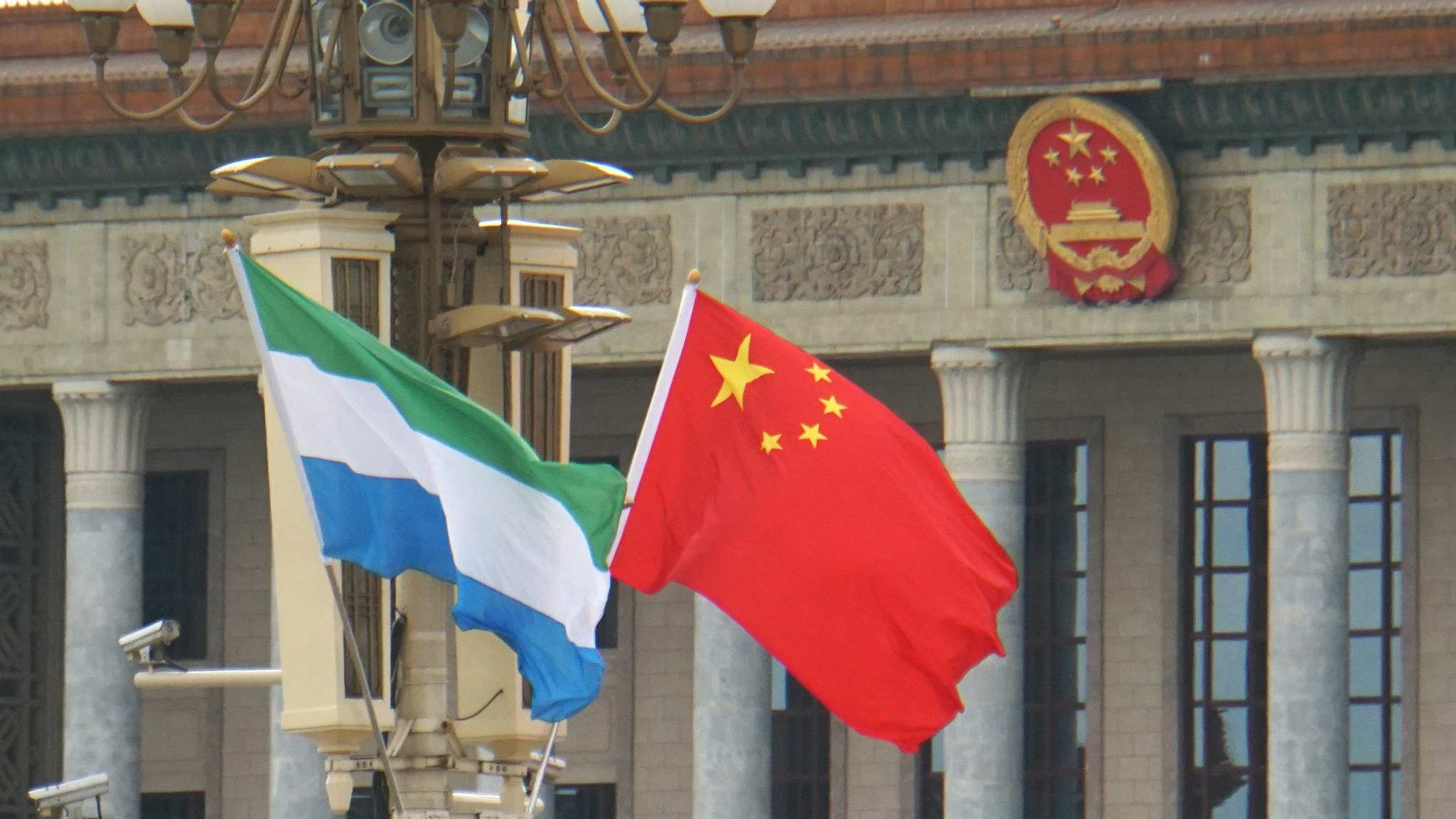By Jerry Kai-Lewis
Last week, China celebrated 74 years of a quantum leap in development that has seen the world’s largest developing country being the second largest economy after the United States. For a developing country China has passed many household names in development (UK, Germany, Japan, France, etc.) that behoves other nations to take note and even assimilate.
Despite what their detractors in the west would say, in Sierra Leone’s relationship with China, we stand to benefit much more than the Chinese. The win-win outcome will always favour Sierra Leone.
In our centuries old relationship with the western countries, what have we gained in terms of development that can wean us from western dependency? If we were to assess our relationship with the west based on development it will become apparently clear that we have been on the receiving end of the stick, and the big losers all along.
Because they came to Africa on the premise that we were inferior, the western countries have benefitted tremendously in their relationship with Africa, and they continue to do so in the postcolonial era having tied our development to their financial management systems.
While we were physically tied to the west during the colonial era, neo-colonialism has to do with finances and who controls the purse strings.
The Chinese didn’t come to Africa as our racial or cultural superiors. They came as our partners who are equally committed to the idea of mutual development and benefit. The outcome of our relationship should always benefit both sides, not obviously leaning on one side. With China, we see a relationship based on respect and a commitment to a win-win outcome that will be the basis for more developments. If Sierra Leone and Africa were serious about development we would have long reviewed our relationship with the western countries to correct the historical anomalies that had and continue to affect our development relationship with them.
While the west came to exploit, China is coming to develop.
What Sierra Leone and Africa and the rest of the developing world should be asking then is, how we can replicate China’s 74 years of unparalleled development, peace and prosperity? If modern progress is tied to infrastructural development then what better way to develop a nation than by building railway belts and expansive roads to have access to previously inaccessible areas from where we mine or produce goods and services meant for export or the local market?
China’s belt and road initiative, if Africa considers its development as critical to her agenda, is the answer to our developmental issues. Lack of roads has been the bane of our developmental drive. While we have the raw goods and services in abundance, getting them to the local markets has been the problem because the farm to market roads were never developed for the smooth facilitation of taking the goods and services to the markets. Focusing our developmental trajectory on building more roads and belts will be a great start to our march to the kind of progress China can boast of after only 74 years of trying and working very hard.
Therefore despite what they will say about China and human rights records and refusing to interfere in the internal politics of their host nations, if we switch to exporting our raw materials to China as opposed to the west, we believe that we will get more in return than we have been getting from the west since the start of our centuries old relationship.
What we appreciate and admire about the Chinese is their honesty about our relationship. The Chinese are an enterprising and industrious people. Their history is a history of a people looking for markets for their expanding businesses. Was China interested in conquering African territories in the age of discovery she would have easily done so in east Africa. But China avoided making vassals out of Africans and is instead interested in doing business that will be mutually beneficial.
As a big country that is still struggling to address a large population of poor people, China has managed to pull many of her citizens out of poverty by creating opportunities at home and abroad. It is this looking for opportunities for her expanding population that has rubbed western countries the wrong way. The Chinese don’t treat Africans as if we are God’s stepchildren. They are here as our equals; it is now up to us to see ourselves in proper light and start working on our development with the focus and unity that only the Chinese can teach us.
In their misguided ranting and raving while attempting to scare Africa and the rest of the developing world not to go to the Chinese for solutions to long and trending developmental issues, the west would not talk about their agencies set up to keep us indebted to them, with the only solution being giving them more of our minerals to be fabricated in their countries while we miss out on the knowledge transfer.
The agencies that the western nation set up to cater to the rest of the world’s needs are more debt traps than providing us with relief. The Bretton Woods institutions, the IMF and World Bank, lend us monies with conditions whose fulfilment leaves us more indebted than relieved of the problem that ailed us.
Because of our historical relationship, the western governments impose their way on us, with conditions tied to loans and other development agreements.
China on the other hand does not help us with conditions attached. Their focus is business. Should you need Chinese help and advice and ask they will help. Short of this, China’s interest in Africa is for a mutually beneficial relationship among equals. Sierra Leone and the rest of the developing world can learn a lot from China.
In our relationship with the Asian economic and military powerhouse, Sierra Leone stands to benefit more than the Chinese. Who can say so of our relationship with the west?









